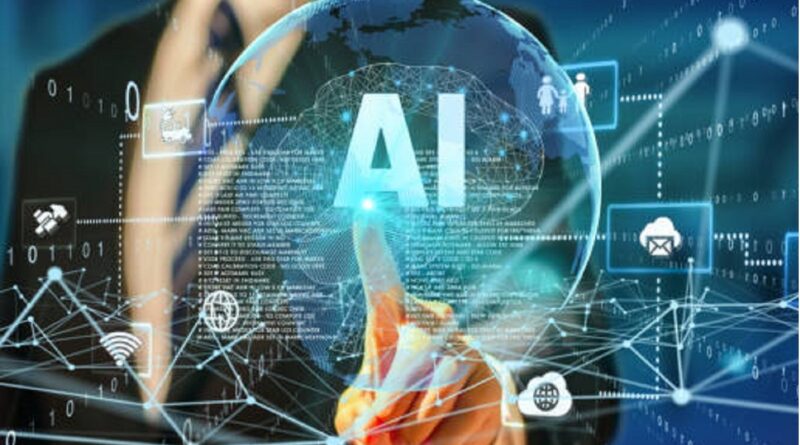Artificial intelligence and stock trading: how AI is transforming the industry
Artificial intelligence (AI) has become a game-changer in various industries, and the world of stock trading is no exception. With its ability to analyse vast amounts of data, identify patterns, and make rapid decisions, AI has revolutionised how stocks are traded.
This article explores the transformative impact of AI on stock trading, from its inception to the latest advancements. It will delve into the various AI-powered trading strategies, the challenges and opportunities it presents, and the potential future developments in the field.
AI trading strategies
AI has introduced many innovative trading strategies that have reshaped the landscape of stock markets. One of the most notable approaches is algorithmic trading, where AI-powered algorithms execute trades based on predefined criteria and real-time market data. These algorithms can analyse historical price patterns, news sentiment, and other relevant data to identify potential trading opportunities with lightning-fast speed, which would be virtually impossible for human traders.
Another AI trading strategy gaining popularity is machine learning-based prediction models. Machine learning algorithms can identify hidden patterns and relationships in historical market data, enabling them to make predictions about future stock price movements. These models continuously learn and improve from new data, leading to more accurate forecasts.
Enhancing investment decisions
AI is not only empowering active traders but also aiding long-term investors in making better-informed decisions on how to buy stocks in the UK. Robo-advisors, powered by AI algorithms, have become famous among retail investors. These digital platforms utilize AI to evaluate an investor’s risk tolerance, financial objectives, and time horizon. Based on this information, they generate personalised investment portfolios. These platforms can continuously monitor and adjust portfolios to align with the investor’s goals, all without the need for human intervention.
AI-driven sentiment analysis tools can scour the internet and social media for news and opinions that could impact stock prices. By assessing public sentiment and identifying market-moving news, these tools provide investors with valuable insights to guide their decision-making process.
Challenges and risks
While AI has brought numerous benefits to stock trading, it also comes with its fair share of challenges and risks. One significant concern is the potential for AI algorithms to amplify market volatility. Algorithmic trading strategies can react quickly to market fluctuations, leading to sudden and significant price swings. This phenomenon, known as flash crashes, can have a cascading effect on the market, creating instability and potential risks for traders and investors.
Another critical consideration is the risk of overreliance on AI technology. As AI becomes more prevalent in stock trading, traders may become overly dependent on these systems and neglect their analysis and judgement. Traders and investors must understand the limitations of AI and use it as a tool to augment their decision-making rather than replace it entirely.
Future developments and opportunities
The true potential of AI in stock trading has yet to be explored. As technology progresses, we anticipate the emergence of increasingly sophisticated AI algorithms that deeply understand intricate market dynamics, enabling them to make exact predictions. In particular, reinforcement learning, a subset of machine learning, shows great promise in developing AI systems that can swiftly adapt and learn in real-time from market feedback, further augmenting their decision-making prowess.
AI will likely be pivotal in creating more sustainable and responsible investment strategies. Environmental, Social, and Governance (ESG) considerations are gaining prominence in the investment world, and AI can help assess companies’ ESG performance and identify investment opportunities that align with sustainable practices.
The human touch in AI trading
While AI has undoubtedly revolutionised stock trading, the human element remains indispensable. Emotional intelligence, intuition, and critical thinking are qualities that human traders possess and that AI algorithms cannot replicate entirely. In times of market uncertainty or unforeseen events, human traders can rely on their experience and judgement to navigate complex situations that may be challenging for AI to handle.
Successful trading often requires a deep understanding of market dynamics, which can be honed through experience and observation. As AI evolves, traders must balance utilising AI’s analytical power and leveraging their unique human insights to achieve optimal trading results.
To that end
Integrating artificial intelligence into the stock trading industry has brought about a paradigm shift in how markets operate. AI-powered strategies have allowed traders to process vast amounts of data and make lightning-fast decisions, improving trading efficiency and accuracy. Moreover, AI has expanded the accessibility of stock trading by enabling robo-advisors to provide personalised investment advice to retail investors.
However, AI also presents challenges, such as potential market volatility and the risk of overreliance on technology. As AI evolves, traders and investors must balance leveraging AI’s capabilities and maintaining their analysis and judgement.




